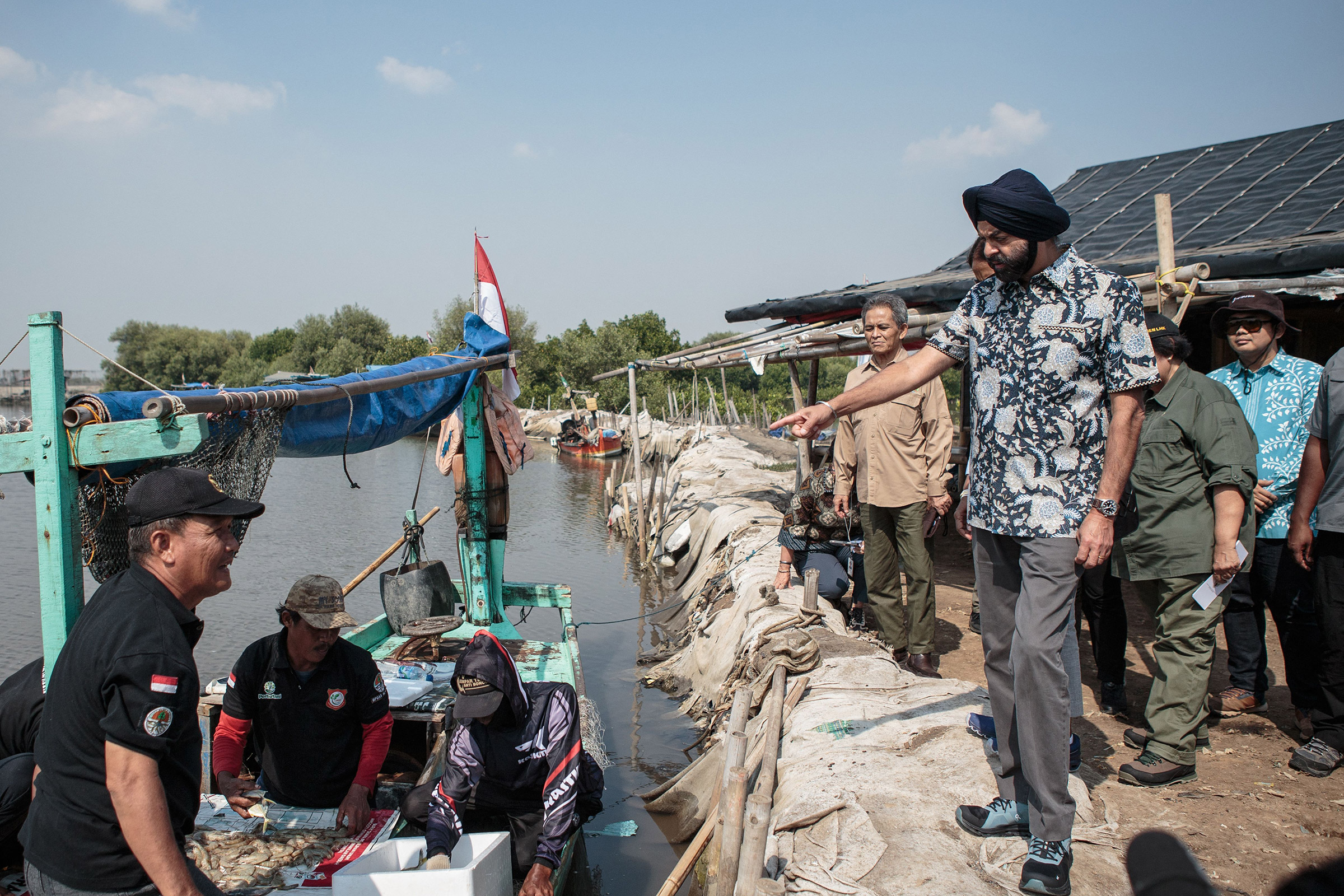Ajay Banga’s approach to solving economic instability in the Global South is a unique one: using not just the financial resources of the World Bank, which he leads, to address global poverty, but also the knowledge of member countries to facilitate collaboration on what works and what doesn’t.
How have you seen prospects for global growth change since COVID-19?
The way that the economies of the world have come out of COVID-19 has actually created a further separation between some who are doing much better and others who are struggling. A number of countries took on debt when interest rates were low, and since then, interest rates have gone up, and that means they’re squeezing the expenditures they would put into quality of life for their people.
Why is that something that everyone should be concerned about, no matter where they live?
The Global South has a higher percentage of young people than the Global North. If, while those young people are growing up, they don’t have access to clean air, clean water, health, and education, you end up with social instability domestically, or people become migrants. The second part is that they’re not going to spend enough on climate adaptation and mitigation because they don’t have the money. And we all share the same air.
You’ve spoken about a growing mistrust between the Global North and South. What did you mean by that?
During the pandemic, the emerging world got vaccines much later, in much smaller quantities. Then there’s also the whole issue of the famous $100 billion [per year that the Global North promised to the Global South] for purposes of climate adaptation and mitigation; they feel that they took longer than promised with the money. Many countries in the Global South also feel that the rules of energy access aren’t applied equally; saying that the Global South shouldn’t use natural gas, but how do they afford to get electricity to their people? So when you put that all together, it starts to add up to “I have to follow what you tell me.” And that’s not a good partnership.
What do you think the World Bank can do to address some of this mistrust?
The World Bank style is changing its mission and vision from getting rid of poverty to getting rid of poverty on a livable planet. The idea is to bring both inequality and humanity vs. nature into one perspective. That means the aperture by which the bank looks at things widens, and we can enable our people, our shareholders, and our knowledge to be applied to this intertwined, perfect storm of challenges. It requires you to deal with poverty along with climate and fragility at the same time.
How specifically is the World Bank mobilizing its resources?
We are a money bank. We gave out $100 billion-plus last year to the poorest countries as well as middle-income countries, to fight everything from inequality to climate change to food insecurity. But for many of the countries I met with, what was more important was our knowledge and our subject-matter expertise. I call that the knowledge bank. We try and take the best practices we’ve learned over time from 189 countries, and say, “In this situation, this tactic works well.” Can you imagine what it means for a country on the ground with limited capacity?
What’s an example of the “knowledge bank” in action?
I visited Peru, and I had never realized that Peru made great progress on stunting [impaired growth that children experience from poor nutrition and disease]. Then I discovered that Indonesia, which used to have a stunting issue because of malnutrition, had worked really hard with the World Bank to bring it down. It’s one of the World Bank’s largest health-care-financing projects. Indonesia has made some real progress, and where did we get our learning from? The work we did with the Peruvian government and with China, which made amazing progress on stunting.
That sounds like it could risk being a one-size-fits-all approach.
The partnership framework starts with listening, then bringing what we understand. We can’t tell them what to do. If we tell them, “Hey, do this,” and they don’t feel it’s important, they’re not going to do it. Our job is to help them figure out what their own priorities should be, and contribute to that.
- Donald Trump Is TIME's 2024 Person of the Year
- Why We Chose Trump as Person of the Year
- Is Intermittent Fasting Good or Bad for You?
- The 100 Must-Read Books of 2024
- The 20 Best Christmas TV Episodes
- Column: If Optimism Feels Ridiculous Now, Try Hope
- The Future of Climate Action Is Trade Policy
- Merle Bombardieri Is Helping People Make the Baby Decision
